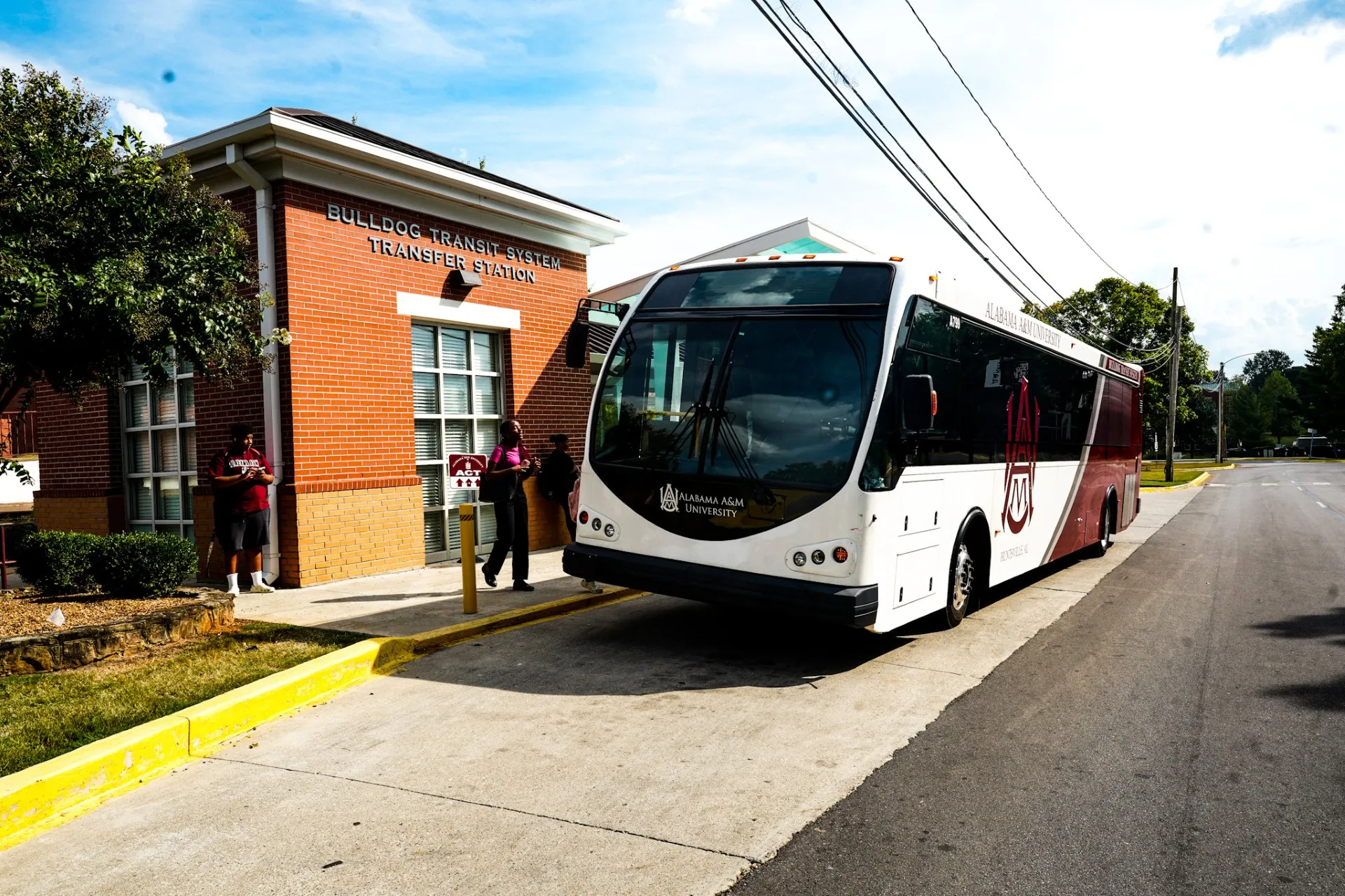Courtesy of Alabama A&M University
Alabama A&M’s Bulldog Transit System has secured an impressive $8.1 million grant through the Competitive Low-No Emissions Program for Fiscal Year 2023. This significant funding aims to expedite BTS’s ambitious goal of establishing a fully zero-emissions transit system by 2031.
Since initiating its sustainability efforts in 2017, BTS has progressively transitioned from fossil fuel-powered buses to battery-electric alternatives. The newly awarded grant will facilitate essential enhancements to the existing infrastructure, including a significant solar power microgrid system expansion, increasing its capacity to 2.5 megawatts. This solar power initiative is crucial as it supports the electric storage system that fuels charging stations and bus facilities.
“This funding allows us to expand on the infrastructure we’ve already built and to enhance our solar energy capabilities,” said Marshall Chimwedzi, director of AAMU BTS. He emphasized that their project’s second phase will involve adding charging stations, a driver’s lounge, and microgrid monitoring rooms within the bus storage facility. Upgrades will include enclosing the service bay and modernizing information systems with real-time monitors for operational efficiency.
The extensive project will also feature an eight-bay expansion for the bus storage station and workforce development programs aimed at training technicians in solar and electric bus maintenance. Furthermore, BTS plans to acquire a zero-emissions autonomous shuttle, an electric shuttle bus, and an electric service truck. The timeline for this grant stretches from Sept. 16, 2024, to March 30, 2031, with the target of achieving total zero emissions by the end of this period.
Furthering the Zero Emissions Goal
Alabama A&M University has made significant strides in sustainability over the years, becoming the first Historically Black College or University to implement electric buses, complete with a charging station and dedicated bus storage facility, back in 2019. In 2021, the University further reinforced its commitment to renewable energy by receiving an additional $4.2 million grant to expand its fleet of electric buses, construct a service bay, and install a battery-electric storage system.

